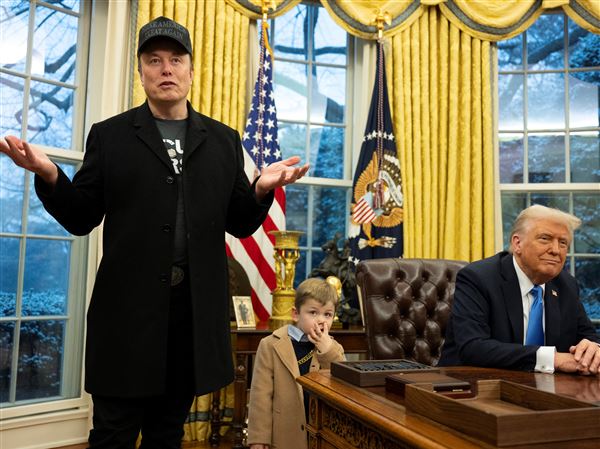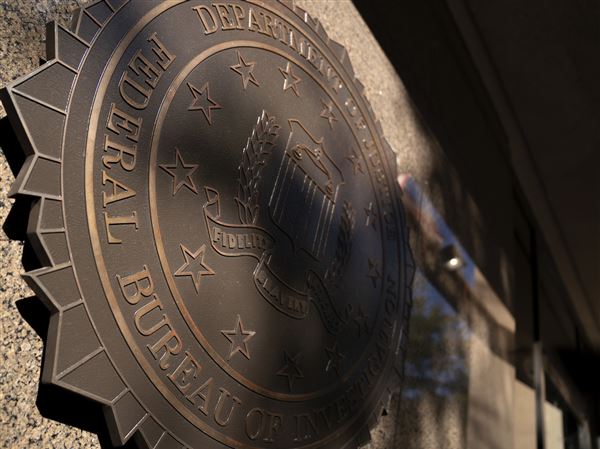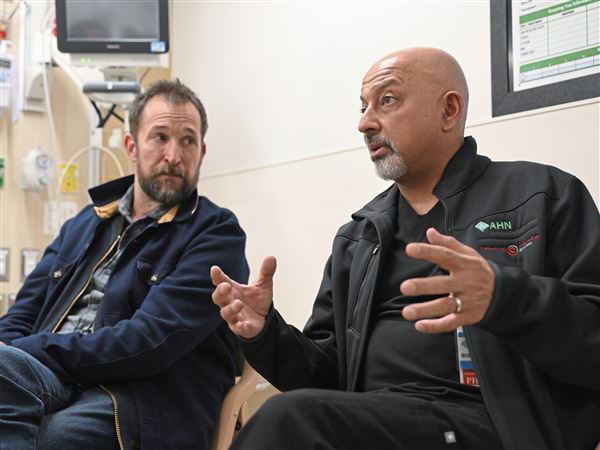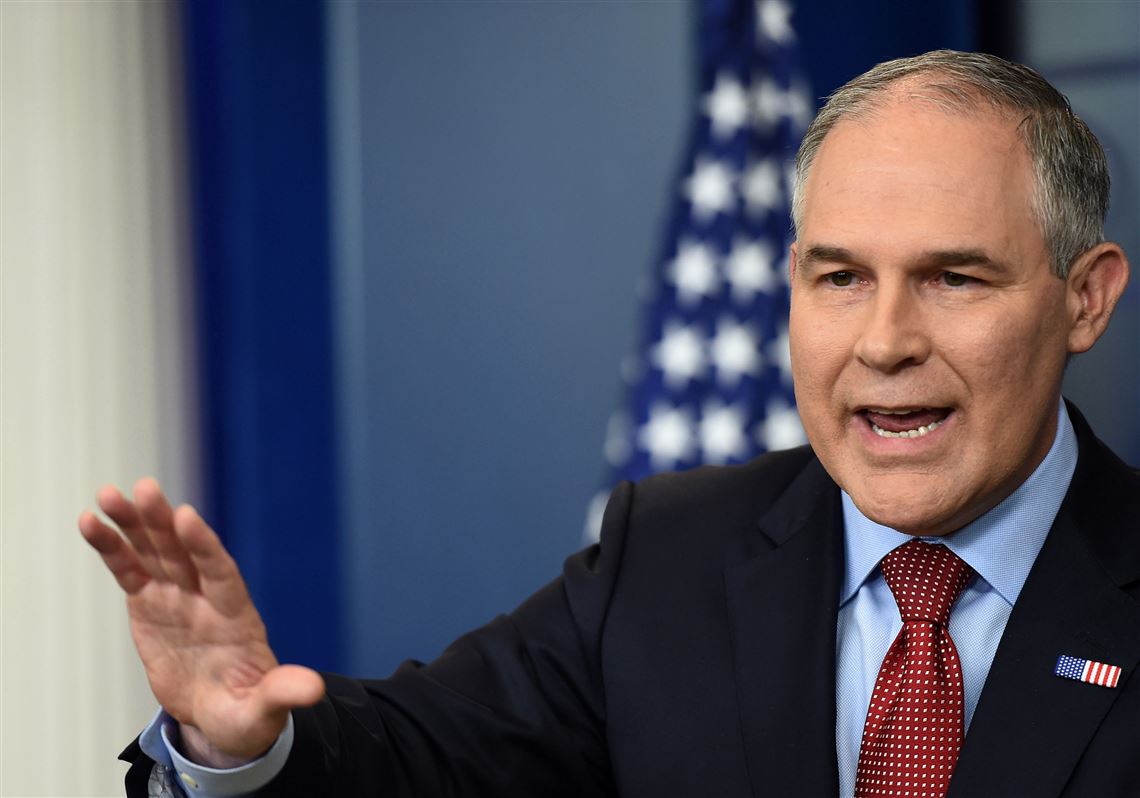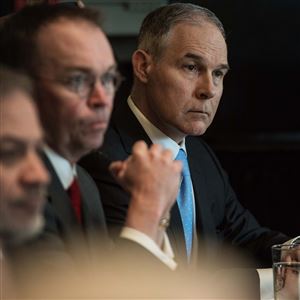Two Democratic senators demanded a congressional inquiry Tuesday into the justification underpinning the round-the-clock security detail for Environmental Protection Agency Administrator Scott Pruitt, citing new documents suggesting that level of security is not justified.
Writing to Senate Environment and Public Works Committee Chairman John Barrasso, R-Wyo., fellow panel members Sheldon Whitehouse, D-R.I., and Thomas Carper, D-Del., reference several internal EPA documents - which they kept confidential “in an abundance of caution to protect any specific ongoing security efforts” - that allude to the kind of threats that have not traditionally triggered 24/7 protection. Those include messages threatening to leave scrapings of old paint at the administrator’s office and one telling Mr. Pruitt “we are watching you” on the agency’s climate-related policies.
In a Feb. 14 “Preliminary Intelligence Enterprise Threat Assessment Review” memo from the EPA’s Office of Homeland Security Intelligence Team, according to the senators’ letter, agency officials used all caps and bold print as they concluded that the justification for the coverage outlined by Mr. Pruitt’s protective security detail in an Oct. 17 memorandum “DOES NOT employ sound analysis or articulate relevant ‘threat specific’ information appropriate to draw any resource or level of threat conclusions regarding the protection posture for the Administrator.”
The memo states that “[u]sing all source intelligence resources, EPA Intelligence has not identified any specific credible direct threat to the EPA Administrator.”
Mr. Pruitt’s aides and members of the EPA’s Inspector General Office have repeatedly said Mr. Pruitt faces a higher level of threats than his immediate predecessors, which has prompted round-the-clock protection and his repeated use of first-class flights since shortly after he took office last February. The salary and travel costs of his detail alone already have reached nearly $3 million, according to an EPA official.
The agency pushed back strongly on Tuesday. “Scott Pruitt has faced an unprecedented amount of death threats against him,” spokesman Jahan Wilcox said in a statement, noting that threat assessments are conducted by the EPA’s Office of Enforcement and Compliance Assurance, using information provided by Mr. Pruitt’s personal security detail, the EPA’s Office of Homeland Security and its inspector general. “Americans should all agree that members of the President’s cabinet should be kept safe from these violent threats.”
In addition, Mr. Barrasso on Tuesday said he had no intention of holding a hearing on the issue and instead criticized Mr. Carper and Mr. Whitehouse for quoting “law enforcement sensitive information” that “should not be further disseminated” without the approval of officials at the Secret Service or the EPA’s inspector general.
“I am deeply troubled that members of the committee would publicly release law enforcement sensitive information regarding the safety and security of a cabinet member and his family,” Mr. Barrasso said in a statement. “This letter selectively quotes non-public documents. Any reasonable reading of these documents supports the Office of the Inspector General’s statements that Administrator Pruitt faces a ‘variety of direct death threats.‘”
While the chairman made it clear he will not be investigating Mr. Pruitt in the near future, the House Oversight and Government Reform Committee is pressing ahead. Former EPA deputy chief of staff for operations Kevin Chmielewski - who objected to the Mr. Pruitt’s travel spending as well as other aspects of his management - was meeting with a bipartisan group of panel investigators Tuesday, according to individuals who spoke on the condition of anonymity to discuss the committee’s internal deliberations.
Mr. Chmielewski, who is on administrative leave without pay, is one of several EPA officials who departed or were reassigned after raising concerns about how Mr. Pruitt and his deputies operated.
The EPA’s assistant inspector general for investigations, Patrick Sullivan, has told The Washington Post and other media that Mr. Pruitt has received a higher number of threats than his predecessors - some of them “very personal, ugly threats.”
After the Post detailed dozens of first-class trips the administrator took during his first year in office, EPA security officials disclosed in February that verbal confrontations with members of the public had prompted Pasquale “Nino” Perrotta, the head of Mr. Pruitt’s detail, to recommend last spring that he switch from coach to premium-class seats whenever possible.
Henry Barnet, who directs the EPA’s Office of Criminal Enforcement, Forensics and Training, told the Post that the goal was to provide “a buffer” between Mr. Pruitt and the public. Mr. Perrotta’s memo was prompted by an incident in which a person approached Mr. Pruitt “with threatening language” that was “vulgar,” Mr. Barnet said at the time.
“They felt they could not protect him appropriately, based on the amount of times he was being recognized and the way that some members of the public were acting toward him,” said Mr. Barnet, who added that he was “not aware of any physical confrontations” the administrator had faced since taking office.
But the new documents detail an ongoing disagreement among the agency’s intelligence officials, the EPA inspector general and senior political appointees over the level of threat Mr. Pruitt faces. The Feb. 14 memo states that EPA intelligence officials told the others that “the ‘threat’ to the Administrator was being inappropriately mischaracterized” by the security detail and inspector general’s office and notes that EPA Intelligence has “not seen any analysis to indicate why the Administrator would be at any greater risk on a commercial airline than any other passenger, or why a trained EPA [security agent] could not protect the Administrator in a different location on the aircraft” than in the business or first-class section.
The EPA’s Intelligence Team asked the United States Secret Service to provide a “Direction of Interest Query” in February 2017 and again this February on potential threats against Mr. Pruitt, the senators write, and neither query returned any “reports of behaviors of interest directed toward EPA Administrator Pruitt.”
“It is hard to reconcile the public statements of EPA, and the President, with these internal and external assessments. It may be that the materials we have been provided are incomplete and that EPA has additional information that justifies its public position,” Mr. Whitehouse and Mr. Carper write. “However, another view is that certain factions within EPA have justified the exorbitant taxpayer spending incurred by the Administrator’s first-class travel and large entourage of security personnel through unsubstantiated claims about threats to his security, either at the direction of the Administrator himself or others in the agency.”
“Either way,” they add, their committee “has a responsibility to look into these matters.”
Though Mr. Pruitt has shown no intention of relinquishing his post, and President Donald Trump has continued to voice his support, the ongoing scrutiny has influenced the administrator’s travel schedule. Mr. Pruitt had planned to travel to Mexico this week, according to multiple agency officials, but has postponed the visit.
First Published: April 10, 2018, 9:15 p.m.

